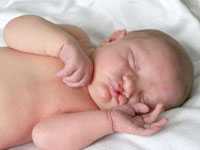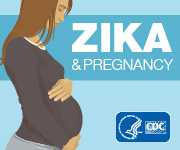Birth Defects Study to Evaluate Pregnancy exposureS (BD-STEPS)
BD-STEPS builds upon the foundation of birth defects research from the National Birth Defects Prevention Study (NBDPS). This new study further examines findings from the NBDPS and follows up on leads to understand more about what causes birth defects and how to prevent them.
About BD-STEPS

BD-STEPS is the next endeavor for the Centers for Birth Defects Research and Prevention (CBDRP) to understand the causes of birth defects. The CBDRP will further examine promising findings from the National Birth Defects Prevention Study (NBDPS), one of the largest studies of birth defects causes in the United States. The NBDPS provided important data on how nutrition, smoking, obesity and medicines affect pregnancies. BD-STEPS will dig deeper into the results of that past research.
BD-STEPS began collecting data on children born on or after January 1, 2014. Results from BD-STEPS will provide researchers with more knowledge about what factors might raise or lower the risk of having a baby with a birth defect. These are called risk factors. There are some things that a woman can change to reduce her chances of having a baby with a birth defect, while other things, she can’t change. BD-STEPS aims to focus on risk factors that a woman may be able to change:
- Diabetes, obesity, and physical activity
- Treatments for chronic (long-term) medical conditions (such as asthma or high blood pressure)
- Treatments for infertility
- Other medication use during pregnancy

BD-STEPS will dig deeper into the results of that past research, which will help women and healthcare providers make the best health decisions for mothers and their babies.
BD-STEPS Study Centers
CDC coordinates the Centers for Birth Defects Research and Prevention (CBDRP) to collaborate on BD-STEPS. Participating sites are located in Arkansas, California, Georgia (CDC), Iowa, Massachusetts, New York, and North Carolina.
Study Components
The main part of the study involves interviewing women on the telephone. Interviewers talk with women who have had a pregnancy affected by a birth defect, as well as with mothers of babies who do not have a birth defect. The interviewers ask women about their pregnancy experience and general health.
Birth Defects Included in this Study

BD-STEPS collects information on babies with 17 major birth defects. These are common birth defects that can be severe and incur high health care use or costs. The following birth defects are included in BD-STEPS:
- Anophthalmia / microphthalmia
- Anotia / microtia
- Cleft lip +/- cleft palate
- Cleft palate
- Diaphragmatic hernia
- Esophageal atresia
- Gastroschisis
- Heart defects including:
- Spina bifida without anencephaly
- Transverse limb deficiency
- Page last reviewed: September 14, 2016
- Page last updated: September 14, 2016
- Content source:



 ShareCompartir
ShareCompartir